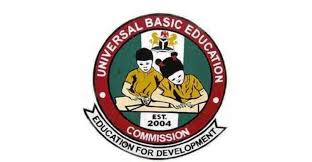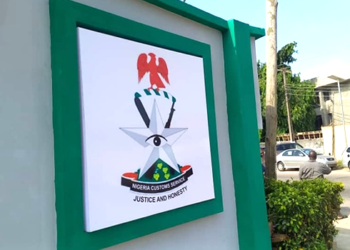Universal Basic Education Commission (UBEC) has organised human capital development training for master-trainers on UBE Effective School Programme in southern states, including Kogi and Kwara.
The News Agency of Nigeria (NAN), reports that effective school programme is a UBEC initiative to address some challenges, such as overcrowding.
Other challenges are: inadequate supply of furniture and instructional materials, teachers’ low capacity and weak school governance in schools.
According to UBEC, a total of 111 schools – three from each senatorial district and the FCT – have been selected as pilots for the programme.
Speaking at the opening of the five-day training, the Executive Secretary of UBEC, Dr Hamid Bobboyi, said that the overall goal was to upgrade schools to a level that they would be conducive for effective teaching and learning.
He enjoined participants to ensure that they cascade the training to teachers in their respective domains, using the technological tools provided.
“You will be expected to cascade the training to the teachers in the 111 schools.
“The commission is counting on your expertise to effectively deliver this role,” he said.
Bobboyi stressed the need for laying technological foundation for Nigerian children, in line with the 21st century education standard.
“This is in furtherance of the commission’s plans to promote smart education at basic education level and lay an enduring foundation for development of relevant technological skills to cope with the 21st century world,” he said.
According to him, UBEC has established 37 smart schools, one in each state of the federation and the FCT.
Bobboyi called for collaboration with the state and the FCT Universal Basic Education Boards, the owners of schools and teachers, to ensure effective management of the resources deployed for the initiative for improved learning outcomes.
Also, the Chairman, Oyo State Universal Basic Education Board (SUBEB), Dr Nureni Adeniran, appreciated UBEC for the programme, promising to ensure that its success in the state.
“This programme started with e-learning centres across the three senatorial districts in each of the states in the country, and from that, they supplied us with a lot of gadgets that would assist in the programme.
“The e-learning centres are now being converted to effective schools; that is, rather than seeing it as an intervention, we now want to see it as a full-blown programme.
“So, it is left for us at the state, and my other colleagues all over the country, to take it from where UBEC has taken it, having given us the lead.
“It is best for the states if this programme continues,” he said.
Adeniran said that other schools would key into the programme in due course, as “education now is technologically-driven.
“Any school that wants to be technologically-driven should key into this programme,” he said.
NAN reports that participants were drawn from the South-West, South-East and South-South zones as well as Kogi and Kwara states. (NAN)











